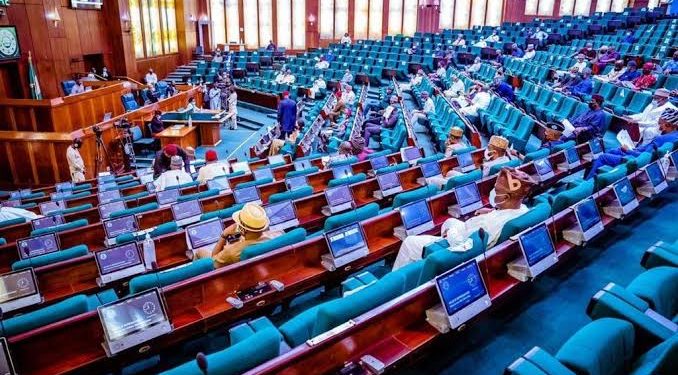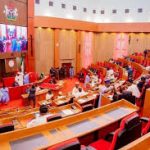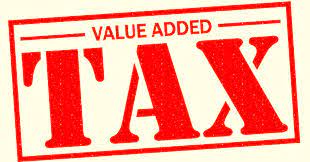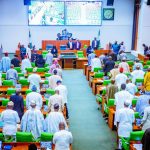The Nigerian House of Representatives has approved President Bola Ahmed Tinubu’s tax reform bills after months of debate but rejected a proposed increase in Value Added Tax (VAT) from 7.5% to 15% by 2030. The House also dismissed the planned reintroduction of inheritance tax under the guise of taxing family income, a move that had sparked criticism from various economic and civil society groups.
Presidential spokesperson Sunday Dare confirmed the passage of the bills in a statement on Thursday, noting that they were approved during plenary in Abuja after extensive deliberations. However, he did not provide details on the final versions of the bills, leaving stakeholders awaiting clarification on the specific amendments made. The passage of the bills comes amid prolonged controversy, with opposition from the Northern Nigeria Governors’ Forum and the National Economic Council, particularly over the VAT derivation model proposed in the Nigeria Tax Bill.
The tax reform package comprises four key bills—the Nigeria Tax Bill, the Nigeria Tax Administration Bill, the Nigeria Revenue Service (Establishment) Bill, and the Joint Revenue Board (Establishment) Bill—aimed at restructuring Nigeria’s tax system to boost revenue collection and improve efficiency.
Presenting the committee’s report, Chairman of the House Committee on Finance, James Faleke, stated that the review process was extensive and incorporated public input. He emphasized that the committee sought to address concerns raised by stakeholders while ensuring that the reforms align with Nigeria’s economic objectives.
One of the major changes made was to the Nigeria Revenue Service (NRS) Bill. Amendments were introduced to limit the NRS’s scope to federal revenue collection, explicitly excluding individual taxpayers in states and the Federal Capital Territory. The committee also restructured the NRS governing board, ensuring regional representation by requiring the appointment of six executive directors from different geopolitical zones on a rotational basis. Additionally, the board will now include representatives from all states and the FCT to maintain a balance in decision-making.
To curb excessive borrowing by the revenue agency, the House tightened the NRS’s borrowing powers, mandating that any loan must be approved by both the Federal Executive Council and the National Assembly before being secured.
The Joint Revenue Board (Establishment) Bill also saw critical adjustments aimed at enhancing transparency and efficiency in tax administration. The House removed a previous requirement that Tax Appeal Commissioners must have business management experience, arguing that this was unnecessary for their role. Additionally, the Tax Ombud’s office was granted financial independence through direct funding from the Consolidated Revenue Fund to prevent external influence.
The Nigeria Tax Administration Bill introduced several practical amendments to enhance tax efficiency. One key adjustment was the extension of the timeline for issuing taxpayer identification numbers (Tax IDs) from two working days to five, acknowledging potential administrative delays. The House also reduced the timeframe for companies ceasing operations to file their final income tax returns from six months to three, a move aimed at preventing revenue loss.
Additionally, the bill revised VAT collection rules to ensure that taxes are attributed to the place of consumption rather than where returns are filed, addressing concerns over regional imbalances. A VAT fiscalization system was introduced to improve compliance, while banking transaction reporting thresholds were raised—individual thresholds increased from ₦25 million to ₦50 million, while corporate thresholds rose from ₦100 million to ₦250 million.
Another significant amendment requires tax authorities to obtain court orders before seizing movable assets, reinforcing the importance of judicial oversight. The House also made a crucial change to VAT revenue distribution, ensuring that 70% is distributed equally among local governments, while the remaining 30% is allocated based on population.
Despite initial proposals to gradually increase VAT to 15% by 2030, the House firmly rejected the plan, opting to retain the current 7.5% rate. Lawmakers also adjusted income tax provisions for petroleum operations, lowering the tax rate on petroleum gains to 30% from the initially proposed 85%.
Provisions related to excise duties were entirely removed due to concerns over their economic impact, and definitions related to small companies were revised, raising the turnover threshold for their classification to ₦100 million while maintaining the asset cap at ₦250 million.
New penalties were introduced for Virtual Assets Service Providers (VASPs), including hefty fines and potential suspension of licenses for non-compliance with tax regulations.
Submitting the report, Faleke stressed the importance of the Tax Reform Bills in modernizing Nigeria’s tax system. He highlighted that the bills were crucial for implementing a transparent, efficient, and growth-driven tax structure. He also revealed that during the committee’s retreat from March 3 to 9, 2025, lawmakers reviewed public submissions and sought input from key government agencies, including the Nigeria Export Processing Zones Authority (NEPZA), the National Agency for Science and Engineering Infrastructure (NASENI), the National Information Technology Development Agency (NITDA), and the Tertiary Education Trust Fund (TETFund).
“The committee carefully examined every submission to ensure that the public’s opinions were incorporated into the review process,” Faleke stated. He added that amendments were recommended for several key laws, including the Companies Income Tax Act (CITA), the Value Added Tax Act (VAT), the Personal Income Tax Act (PITA), and the Federal Inland Revenue Service (Establishment) Act. Additional changes were made to the Petroleum Industry Act, the Nigeria Export Processing Zones Act, and the Oil and Gas Free Trade Zone Act.
Following the passage of the bills, reactions from stakeholders have been mixed. The Nigerian Association of Chambers of Commerce, Industry, Mines, and Agriculture (NACCIMA) said it would withhold comments until the full details of the approved reforms are released.
“We need to see what was approved. There were a lot of concerns about the draft bill, so we will wait for the details before making any statements,” NACCIMA President Dele Oye stated.
On the other hand, civil society organizations and labor groups remain wary. The Movement for Socialist Alternative (MSA), a member of the Joint Action Front, criticized the House’s decision, arguing that the tax reforms still favor the wealthy while placing an increased financial burden on ordinary Nigerians.
Dagga Tolar, General Secretary of the MSA, warned that the rejection of the VAT increase should not be seen as a victory for workers, as the broader tax reforms still aim to extract more from the lower-income population while granting tax breaks to the country’s elites.
“This House of Representatives’ decision should not be applauded just yet. The tax reform bill, in its entirety, still prioritizes the interests of billionaires over the working population, who continue to struggle with hunger, inflation, and unemployment,” Tolar said.
He called on the Nigeria Labour Congress (NLC) and the Trade Union Congress (TUC) to mobilize workers in opposition to the new tax policies, demanding a new minimum wage that reflects the current inflation rate. He further urged labor unions to push for progressive taxation that forces billionaires and corporations to contribute more, while also advocating for an emergency relief package of at least ₦100,000 for all workers and the unemployed.
With the bills now passed by the House of Representatives, the next phase of the legislative process will involve further deliberations before potential finalization by the National Assembly. Lawmakers are expected to continue reviewing the proposed amendments in the coming weeks, with close attention from stakeholders across the country.
While the rejection of the VAT increase has been welcomed by many, concerns remain about the broader impact of the tax reforms, particularly on the working class. As deliberations continue, labor unions, business groups, and civil society organizations are expected to play a crucial role in shaping the final outcome of Nigeria’s new tax regime.










